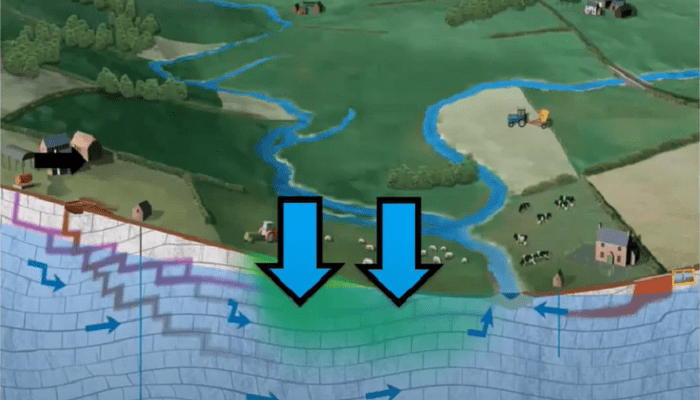
leaching risks.png

Soil Leaching
Definition:
Soil leaching refers to the process by which water moves through the soil, carrying away dissolved nutrients and minerals. This movement of water can occur vertically through the soil profile, leading to the loss of essential nutrients from the root zone.
Beneficial Guidance:
- Understanding Soil Composition: It’s crucial for farmers to comprehend the composition of their soil to predict leaching risks accurately. Sandy soils, for example, are more prone to leaching due to their larger particle size and higher permeability, allowing water to move more freely.
- Monitoring Water Usage: Farmers should monitor irrigation practices carefully to avoid overwatering, which can exacerbate leaching. Implementing efficient irrigation methods such as drip irrigation or using moisture sensors can help optimize water usage and minimize leaching.
- Utilizing Cover Crops: Planting cover crops during fallow periods can help reduce soil erosion and improve water retention, ultimately decreasing the likelihood of leaching. Cover crops also enhance soil structure and microbial activity, further mitigating leaching risks.
- Applying Mulch: Mulching can serve as a protective layer over the soil, reducing the impact of rainfall and preventing excessive water infiltration. Organic mulches, such as straw or compost, not only aid in moisture retention but also contribute to soil fertility and microbial diversity.
- Implementing Soil Amendments: Adding organic matter, such as compost or manure, to the soil can enhance its ability to retain nutrients and water, reducing the leaching of essential elements like nitrogen and phosphorus. Incorporating amendments based on soil testing results ensures targeted nutrient management.
Enlightening Details:
Soil leaching poses significant challenges to agricultural productivity and environmental sustainability. Excessive nutrient loss not only diminishes crop yields but also contributes to water pollution through the contamination of groundwater and surface water bodies. By adopting proactive measures to mitigate leaching risks, farmers can promote soil health and enhance the long-term resilience of their farming systems.
Fall off the barn roof and busted your keister? Life on the farm or ranch can be tough on the bum. Need a break? Laugh it off at FarmerCowboy.com, the #1 farm humor site. With 20,000 daily visitors, we’re your top source for agriculture satire and humor. Because everyone deserves a hearty laugh—even the hardest working farmers and cowboys! Join us and turn those long days into fun tales at FarmerCowboy.com.
Actionable Suggestions:
- Conduct regular soil tests to assess nutrient levels and pH, enabling informed fertilization decisions and nutrient management strategies.
- Implement conservation practices such as contour plowing, terracing, and buffer strips to reduce soil erosion and minimize the transport of sediment and nutrients.
- Explore alternative cropping systems such as agroforestry or rotational grazing, which can improve soil structure, biodiversity, and water infiltration rates.
- Engage in ongoing education and outreach programs to raise awareness about the importance of soil conservation and sustainable land management practices within the farming community.
References:
- USDA Natural Resources Conservation Service: Soil Erosion and Soil Health
- Food and Agriculture Organization of the United Nations: Soil Erosion
- United States Environmental Protection Agency: Soil Erosion and Sediment Control
Originally posted 2024-03-03 02:29:08.
Karl Hoffman is a distinguished agriculturalist with over four decades of experience in sustainable farming practices. He holds a Ph.D. in Agronomy from Cornell University and has made significant contributions as a professor at Iowa State University. Hoffman’s groundbreaking research on integrated pest management and soil health has revolutionized modern agriculture. As a respected farm journalist, his column “Field Notes with Karl Hoffman” and his blog “The Modern Farmer” provide insightful, practical advice to a global audience. Hoffman’s work with the USDA and the United Nations FAO has enhanced food security worldwide. His awards include the USDA’s Distinguished Service Award and the World Food Prize, reflecting his profound impact on agriculture and sustainability.



